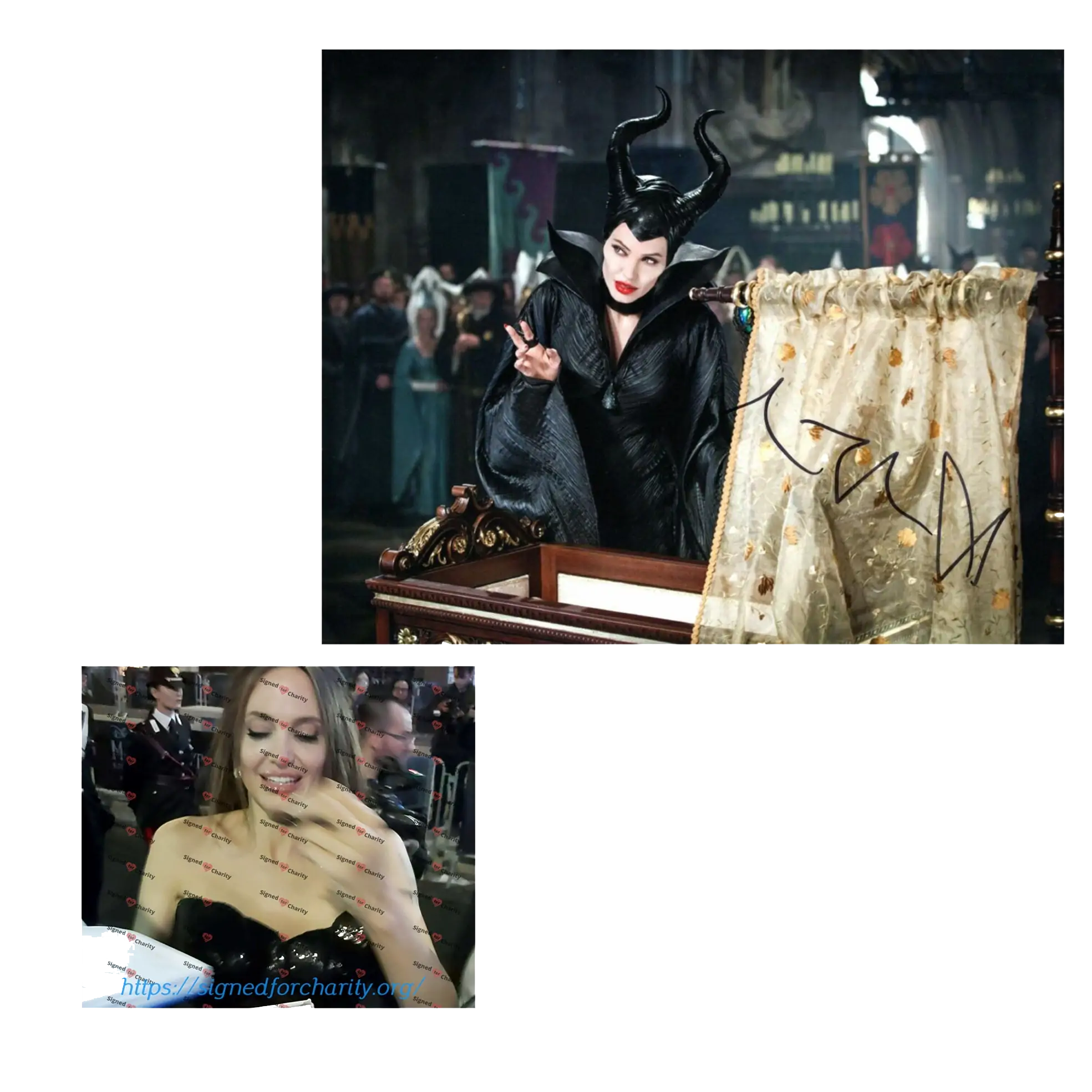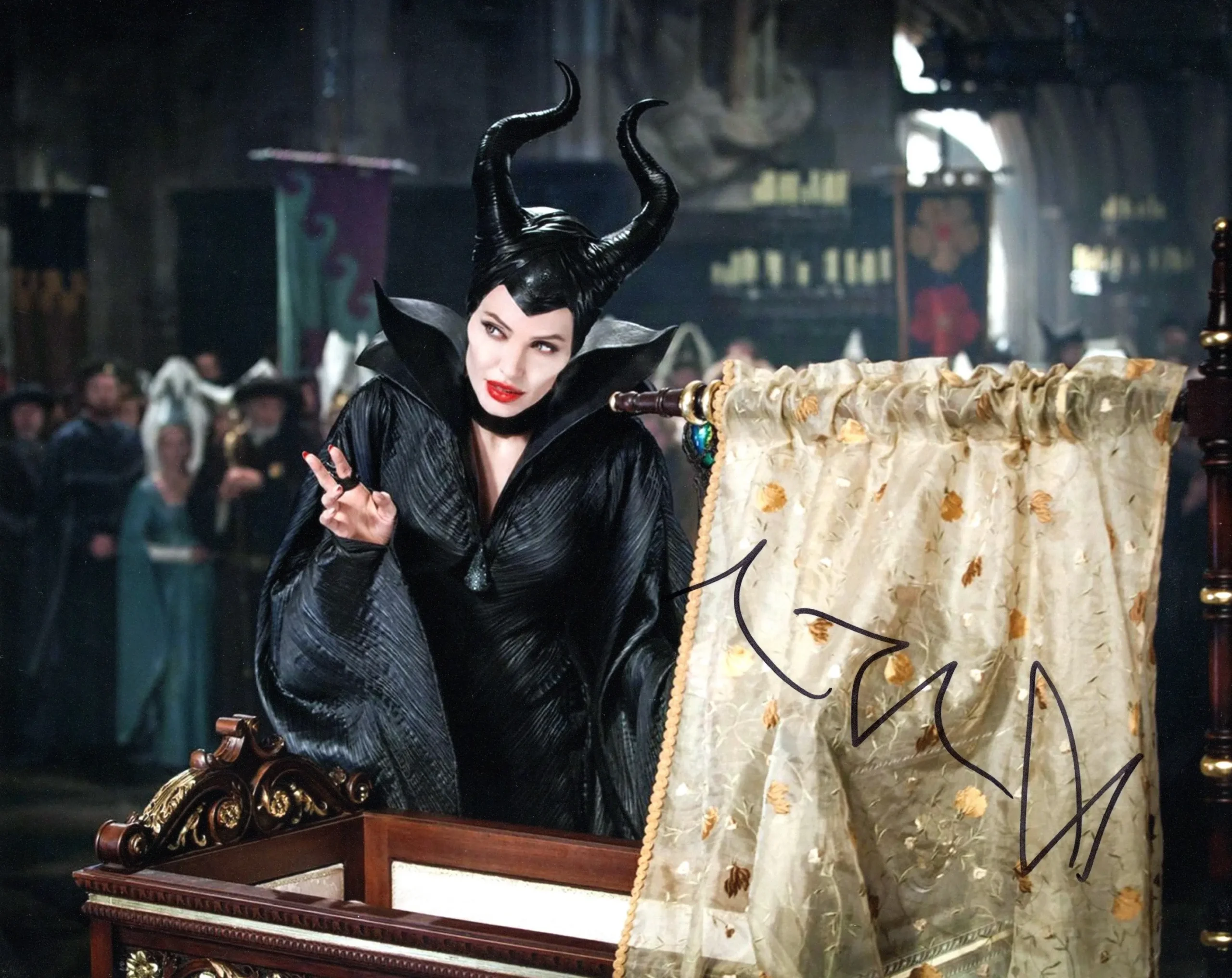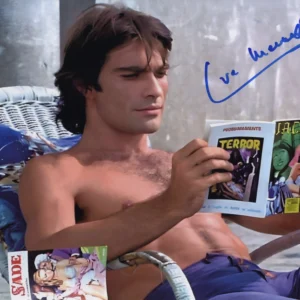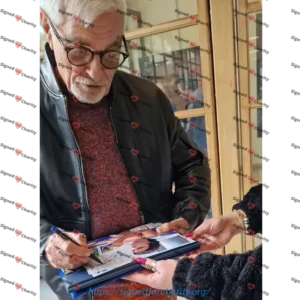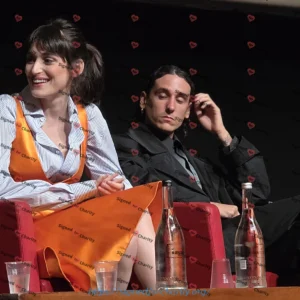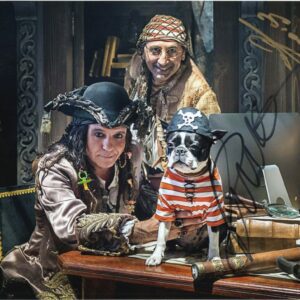Description
Angelina Jolie (born June 4, 1975) is an American actress, filmmaker, and humanitarian. The recipient of numerous accolades, including an Academy Award and three Golden Globe Awards, she has been named Hollywood’s highest-paid actress multiple times. Jolie made her screen debut as a child alongside her father, Jon Voight, in Lookin’ to Get Out (1982), and her film career began in earnest a decade later with the low-budget production Cyborg 2 (1993), followed by her first leading role in a major film, Hackers (1995). She starred in the critically acclaimed biographical cable films George Wallace (1997) and Gia (1998), and won an Academy Award for Best Supporting Actress for her performance in the 1999 drama Girl, Interrupted. Her starring role as the video game heroine Lara Croft in Lara Croft: Tomb Raider (2001) established her as a leading Hollywood actress. She continued her action-star career with Mr. & Mrs. Smith (2005), Wanted (2008), Salt (2010), and The Tourist (2010), and received critical acclaim for her performances in the dramas A Mighty Heart (2007) and Changeling (2008), the latter of which earned her a nomination for an Academy Award for Best Actress. Her biggest commercial success came with the fantasy picture Maleficent (2014). She is also known for her voice role in animation film series Kung Fu Panda (2008–present). Jolie has also directed and written several war dramas, namely In the Land of Blood and Honey (2011), Unbroken (2014), and First They Killed My Father (2017). In addition to her film career, Jolie is known for her humanitarian efforts, for which she has received a Jean Hersholt Humanitarian Award and made an honorary Dame Commander of the Order of St Michael and St George (DCMG), among other honors. She promotes various causes, including conservation, education, and women’s rights, and is most noted for her advocacy on behalf of refugees as a Special Envoy for the United Nations High Commissioner for Refugees (UNHCR). Jolie has undertaken over a dozen field missions globally to refugee camps and war zones; her visited countries include Sierra Leone, Tanzania, Pakistan, Afghanistan, Syria and Sudan. As a public figure, Jolie has been cited as one of the most powerful and influential people in the American entertainment industry. She has been cited as the world’s most beautiful woman by various media outlets. Her personal life, including her relationships, marriages, and health, has been the subject of wide publicity. She is divorced from actors Jonny Lee Miller, Billy Bob Thornton and Brad Pitt. She has six children with Pitt, three of whom were adopted internationally.
Angelina Jolie Voight was born on June 4, 1975, in Los Angeles, California, to actors Jon Voight and Marcheline Bertrand. She is the sister of actor James Haven as well as the niece of singer-songwriter Chip Taylor and geologist and volcanologist Barry Voight. Her godparents are actors Jacqueline Bisset and Maximilian Schell. On her father’s side, Jolie is of German and Slovak descent, while on her mother’s side, she has primarily French Canadian, Dutch, and German ancestry. Jolie has noted that she is part Iroquois through a 17th-century Huron ancestor. Following her parents’ separation in 1976, she and her brother lived with their mother, who had abandoned her acting ambitions to focus on raising her children. Jolie’s mother raised her as a Catholic but did not require her to go to church. As a child, she often watched films with her mother and it was this, rather than her father’s successful career, that inspired her interest in acting, though she had a bit part in Voight’s Lookin’ to Get Out (1982) at age seven. When Jolie was six years old, Bertrand and her live-in partner, filmmaker Bill Day, moved the family to Palisades, New York; they returned to Los Angeles five years later. Jolie then decided she wanted to act and enrolled at the Lee Strasberg Theatre Institute, where she trained for two years and appeared in several stage productions. Jolie first attended Beverly Hills High School, where she felt isolated among the children of some of the area’s affluent families because her mother survived on a more modest income. She was teased by other students, who targeted her for being extremely thin and for wearing glasses and braces. Her early attempts at modeling, at her mother’s insistence, proved unsuccessful. She then transferred to Moreno High School, an alternative school, where she became a “punk outsider,” wearing all-black clothing, going out moshing, and experimenting with knife play with her live-in boyfriend. She dropped out of her acting classes and aspired to become a funeral director, taking at-home courses to study embalming. At age 16, after the relationship had ended, Jolie graduated from high school and rented her own apartment before returning to theater studies, though in 2004 she referred to this period with the observation, “I am still at heart—and always will be—just a punk kid with tattoos.” As a teenager, Jolie found it difficult to emotionally connect with other people, and as a result she self-harmed, later commenting, “For some reason, the ritual of having cut myself and feeling the pain, maybe feeling alive, feeling some kind of release, it was somehow therapeutic to me.” She also struggled with insomnia and an eating disorder and began experimenting with drugs; by age 20, she had used “just about every drug possible,” particularly heroin. Jolie suffered episodes of depression and planned to commit suicide twice—at age 19 and again at 22, when she attempted to hire a hitman to kill her. When she was 24, she experienced a nervous breakdown and was admitted for 72 hours to UCLA Medical Center’s psychiatric ward. Two years later, after adopting her first child, Jolie found stability in her life, later stating, “I knew once I committed to Maddox, I would never be self-destructive again.” Jolie has had a lifelong dysfunctional relationship with her father, which began when Voight left the family when his daughter was less than a year old. She has said that from then on their time together was sporadic and usually carried out in front of the press. They reconciled when they appeared together in Lara Croft: Tomb Raider (2001), but their relationship again deteriorated. Jolie petitioned the court to legally remove her surname, Voight, in favor of her middle name, which she had long used as a stage name; the name change was granted on September 12, 2002. Voight then went public with their estrangement during an appearance on Access Hollywood, in which he claimed Jolie had “serious mental problems.” At that point, her mother and brother also broke off contact with him. They did not speak for six and a half years but began rebuilding their relationship in the wake of Bertrand’s death from ovarian cancer on January 27, 2007 before going public with their reconciliation three years later.
1991–1997: Early work
Jolie committed to acting professionally at the age of 16, but initially found it difficult to pass auditions, often being told that her demeanor was “too dark.” She appeared in five of her brother’s student films, made while he attended the USC School of Cinema-Television, as well as in several music videos, namely Lenny Kravitz’s “Stand by My Woman” (1991), Antonello Venditti’s “Alta Marea” (1991), The Lemonheads’s “It’s About Time” (1993), and Meat Loaf’s “Rock and Roll Dreams Come Through” (1993). She began to learn from her father, as she noticed his method of observing people to become like them. Their relationship during this time was less strained, with Jolie realizing that they were both “drama queens.” Jolie began her professional film career in 1993, when she played her first leading role in the direct-to-video science-fiction sequel Cyborg 2, as a near-human robot designed for corporate espionage and assassination. She was so disappointed with the film that she did not audition again for a year. Following a supporting role in the independent film Without Evidence (1995), she starred in her first Hollywood picture, Hackers (1995). The New York Times critic Janet Maslin wrote that Angelina’s character Kate “stands out. That’s because she scowls even more sourly than and is that rare female hacker who sits intently at her keyboard in a see-through top.” Hackers failed to make a profit at the box office, but developed a cult following after its video release. After starring in the modern-day Romeo and Juliet adaptation Love Is All There Is (1996), Jolie appeared in the road movie Mojave Moon (1996), of which The Hollywood Reporter said, “Jolie, an actress whom the camera truly adores, reveals a comic flair and the kind of blatant sexuality that makes it entirely credible that Danny Aiello’s character would drop everything just for the chance of being with her.” In Foxfire (1996) she played a drifter who unites four teenage girls against a teacher who has sexually harassed them. Jack Mathews of the Los Angeles Times wrote of her performance, “It took a lot of hogwash to develop this character, but Jolie, Jon Voight’s knockout daughter, has the presence to overcome the stereotype. Though the story is narrated by Maddy, Legs is the subject and the catalyst.” In 1997, Jolie starred with David Duchovny in the thriller Playing God, set in the Los Angeles underworld. The film was not well received by critics; Chicago Sun-Times critic Roger Ebert wrote that Jolie “finds a certain warmth in a kind of role that is usually hard and aggressive; she seems too nice to be girlfriend, and maybe she is.” Her next work, as a frontierswoman in the CBS miniseries True Women (1997), was even less successful; writing for The Philadelphia Inquirer, Robert Strauss dismissed her as “horrid, a fourth-rate Scarlett O’Hara” who relies on “gnashed teeth and overly pouted lips.” Jolie also starred in the music video for the Rolling Stones’s “Anybody Seen My Baby?” as a stripper who leaves mid-performance to wander New York City. Jolie’s career prospects began to improve after she won a Golden Globe Award for her performance in TNT’s George Wallace (1997), about the life of the segregationist Alabama Governor and presidential candidate George Wallace, played by Gary Sinise. Jolie portrayed Wallace’s second wife, Cornelia, a performance Lee Winfrey of The Philadelphia Inquirer considered a highlight of the film. George Wallace was very well received by critics and won, among other awards, the Golden Globe Award for Best Miniseries or Television Film. Jolie also received a nomination for an Emmy Award for her performance.
1998–2000: Breakthrough
Jolie’s first breakthrough came when she portrayed supermodel Gia Carangi in HBO’s Gia (1998). The film chronicles the destruction of Carangi’s life and career as a result of her addiction to heroin, and her decline and death from AIDS in the mid-1980s. Vanessa Vance of Reel.com retrospectively noted, “Jolie gained wide recognition for her role as the titular Gia, and it’s easy to see why. Jolie is fierce in her portrayal—filling the part with nerve, charm, and desperation—and her role in this film is quite possibly the most beautiful train wreck ever filmed.” For the second consecutive year, Jolie won a Golden Globe Award and was nominated for an Emmy Award. She also won her first Screen Actors Guild Award. In accordance with Lee Strasberg’s method acting, Jolie preferred to stay in character in between scenes during many of her early films, and as a result had gained a reputation for being difficult to deal with. While shooting Gia, she told her husband, Jonny Lee Miller, that she would not be able to phone him: “I’d tell him: ‘I’m alone; I’m dying; I’m gay; I’m not going to see you for weeks.” After Gia wrapped, she briefly gave up acting, because she felt that she had “nothing else to give.” She separated from Miller and moved to New York, where she took night classes at New York University to study directing and screenwriting. Encouraged by her Golden Globe Award win for George Wallace and the positive critical reception of Gia, Jolie resumed her career. Following the previously filmed gangster film Hell’s Kitchen (1998), Jolie returned to the screen in Playing by Heart (1998), part of an ensemble cast that included Sean Connery, Gillian Anderson, and Ryan Phillippe. The film received predominantly positive reviews, and Jolie was praised in particular; San Francisco Chronicle critic Peter Stack wrote, “Jolie, working through an overwritten part, is a sensation as the desperate club crawler learning truths about what she’s willing to gamble.” She won the Breakthrough Performance Award from the National Board of Review. In 1999, Jolie starred in the comedy-drama Pushing Tin, alongside John Cusack, Billy Bob Thornton, and Cate Blanchett. The film met with mixed reception from critics, and Jolie’s character—Thornton’s seductive wife—was particularly criticized; writing for The Washington Post, Desson Howe dismissed her as “a completely ludicrous writer’s creation of a free-spirited woman who weeps over hibiscus plants that die, wears lots of turquoise rings and gets real lonely when Russell spends entire nights away from home.” Jolie then co-starred with Denzel Washington in The Bone Collector (1999), playing a police officer who reluctantly helps Washington’s quadriplegic detective track down a serial killer. The film grossed $151.5 million worldwide, but was critically unsuccessful. Terry Lawson of the Detroit Free Press concluded, “Jolie, while always delicious to look at, is simply and woefully miscast.” Jolie next took the supporting role of a sociopathic mental patient in Girl, Interrupted (1999), an adaptation of Susanna Kaysen’s memoir of the same name. While Winona Ryder played the main character in what was hoped to be a comeback for her, the film instead marked Jolie’s final breakthrough in Hollywood. She won her third Golden Globe Award, her second Screen Actors Guild Award, and an Academy Award for Best Supporting Actress in 2000. For Variety, Emanuel Levy noted, “Jolie is excellent as the flamboyant, irresponsible girl who turns out to be far more instrumental than the doctors in Susanna’s rehabilitation.” In 2000, Jolie appeared in her first summer blockbuster, Gone in 60 Seconds, which became her highest-grossing film to that point, earning $237.2 million internationally. She had a minor role as the mechanic ex-girlfriend of a car thief played by Nicolas Cage; The Washington Post writer Stephen Hunter criticized that “all she does in this movie is stand around, cooling down, modeling those fleshy, pulsating muscle-tubes that nest so provocatively around her teeth.” Jolie later explained that the film had been a welcome relief after her emotionally demanding role in Girl, Interrupted.
Although widely praised for her acting and performances, Jolie had rarely found films that appealed to a wide audience, but 2001’s Lara Croft: Tomb Raider made her an international superstar. An adaptation of the popular Tomb Raider video games, the film required her to learn an English accent and undergo extensive martial arts training to play the archaeologist-adventurer Lara Croft. Although the film generated mostly negative reviews, Jolie was generally praised for her physical performance; Newsday’s John Anderson commented, “Jolie makes the title character a virtual icon of female competence and coolth.” The film was an international hit, earning $274.7 million worldwide, and launched her global reputation as a female action star. Jolie next starred opposite Antonio Banderas as his mail-order bride in Original Sin (2001), the first of a string of films that were poorly received by critics and audiences alike. The New York Times critic Elvis Mitchell questioned Jolie’s decision to follow her Oscar-winning performance with “soft-core nonsense.” The romantic comedy Life or Something Like It (2002), though equally unsuccessful, marked an unusual choice for Jolie. Salon magazine’s Allen Barra considered her ambitious newscaster character a rare attempt at playing a conventional women’s role, noting that her performance “doesn’t get off the ground until a scene where she goes punk and leads a group of striking bus workers in singing ‘Satisfaction'”. Despite her lack of box office success, Jolie remained in demand as an actress; in 2002, she established herself among Hollywood’s highest-paid actresses, earning $10–$15 million per film for the next five years. Jolie reprised her role as Lara Croft in Lara Croft: Tomb Raider – The Cradle of Life (2003), which was not as lucrative as the original, earning $156.5 million at the international box office. She also starred in the music video for Korn’s “Did My Time”, which was used to promote the sequel. Her next film was Beyond Borders (2003), in which she portrayed a socialite who joins an aid worker played by Clive Owen. Though unsuccessful with audiences, the film stands as the first of several passion projects Jolie has made to bring attention to humanitarian causes. Beyond Borders was a critical failure; Kenneth Turan of the Los Angeles Times acknowledged Jolie’s ability to “bring electricity and believability to roles,” but wrote that “the limbo of a hybrid character, a badly written cardboard person in a fly-infested, blood-and-guts world, completely defeats her.” The year 2004 saw the release of four films featuring Jolie. She first starred in the thriller Taking Lives as an FBI profiler summoned to help Montreal law enforcement hunt down a serial killer. The film received mixed reviews; The Hollywood Reporter critic Kirk Honeycutt concluded, “Jolie plays a role that definitely feels like something she has already done, but she does add an unmistakable dash of excitement and glamour.” Jolie made a brief appearance as a fighter pilot in Sky Captain and the World of Tomorrow, a science fiction adventure shot entirely with actors in front of a bluescreen, and voiced her first family film, the DreamWorks animation Shark Tale. Her supporting role as Queen Olympias in Oliver Stone’s Alexander, about the life of Alexander the Great, was met with mixed reception, particularly concerning her Slavic accent. Commercially, the film failed in North America, which Stone attributed to disapproval of the depiction of Alexander’s bisexuality, but it succeeded internationally, grossing $167.3 million.
2005–2010: Established actress
In 2005, Jolie returned to major box office success with the action-comedy Mr. & Mrs. Smith, in which she starred opposite Brad Pitt as a bored married couple who find out that they are both secret assassins. The film received mixed reviews, but was generally lauded for the chemistry between the two leads; Star Tribune critic Colin Covert noted, “While the story feels haphazard, the movie gets by on gregarious charm, galloping energy and the stars’ thermonuclear screen chemistry.” With box office takings of $478.2 million worldwide, Mr. & Mrs. Smith was the seventh-highest grossing picture of the year and remained Jolie’s highest-grossing live-action film for the next decade. Following a supporting role as the neglected wife of a CIA officer in Robert De Niro’s The Good Shepherd (2006), Jolie starred as Mariane Pearl in the documentary-style drama A Mighty Heart (2007). Based on Pearl’s memoir of the same name, the film chronicles the kidnapping and murder of her husband, The Wall Street Journal reporter Daniel Pearl, in Pakistan. Although the biracial Pearl had personally chosen Jolie for the role, the casting drew racial criticism and accusations of blackface. The resulting performance was widely praised; Ray Bennett of The Hollywood Reporter described it as “well-measured and moving,” played “with respect and a firm grasp on a difficult accent.” She received nominations for a Golden Globe Award and a Screen Actors Guild Award. Jolie also played a shape-shifting seductress, Grendel’s mother, in the epic Beowulf (2007), created through motion capture. The film was critically and commercially well received, earning $196.4 million worldwide. By 2008, Jolie was considered the highest-paid actress in Hollywood, earning $15–$20 million per film. While other actresses had been forced to take salary cuts in recent years, Jolie’s perceived box office appeal allowed her to command as much as $20 million plus a percentage. She starred alongside James McAvoy and Morgan Freeman in the action film Wanted (2008), which proved an international success, earning $341.4 million worldwide. The film received predominantly favorable reviews; writing for The New York Times, Manohla Dargis noted that Jolie was “perfectly cast as a super-scary, seemingly amoral assassin,” adding that “she cuts the kind of disciplinarian figure who can bring boys of all ages to their knees or at least into their theater seats.” Jolie next took the lead role in Clint Eastwood’s drama Changeling (2008). Based in part on the Wineville Chicken Coop Murders, the film centers on Christine Collins, who is reunited with her kidnapped son in 1928 Los Angeles, only to realize the boy is an imposter. Chicago Tribune critic Michael Phillips noted, “Jolie really shines in the calm before the storm, the scenes when one patronizing male authority figure after another belittles her at their peril.” She received nominations for a Golden Globe Award, a Screen Actors Guild Award, a BAFTA Award, and an Academy Award for Best Actress. Jolie also voiced the DreamWorks animation Kung Fu Panda (2008), the first work in a major family franchise, later reprising her voice role in the sequels Kung Fu Panda 2 (2011) and Kung Fu Panda 3 (2016). After her mother’s death in 2007, Jolie appeared in fewer films, later explaining that her motivation to be an actress had stemmed from her mother’s acting ambitions. Her first film in two years was the 2010 thriller Salt, in which she starred as a CIA agent who goes on the run after she is accused of being a KGB sleeper agent. Originally written as a male character with Tom Cruise attached to star, agent Salt underwent a gender change after a Columbia Pictures executive suggested Jolie for the role. With revenues of $293.5 million, Salt became an international success. The film received generally positive reviews, with Jolie’s performance in particular earning praise; Empire magazine critic William Thomas remarked, “When it comes to selling incredible, crazy, death-defying antics, Jolie has few peers in the action business.” Jolie starred opposite Johnny Depp in the thriller The Tourist (2010). The film was a critical failure, though Roger Ebert defended Jolie’s performance, stating that she “does her darndest” and “plays her femme fatale with flat-out, drop-dead sexuality.” Despite poor critical reception and a slow start at the North American box office, the film went on to gross a respectable $278.3 million worldwide, cementing Jolie’s appeal to international audiences. She received a Golden Globe Award nomination for her performance, which gave rise to speculation that it had been given merely to ensure her high-profile presence at the awards ceremony.
2011–present: Career expansion
After directing the documentary A Place in Time (2007), which was distributed through the National Education Association, Jolie made her feature directorial debut with In the Land of Blood and Honey (2011), a love story between a Serb soldier and a Bosniak prisoner, set during the 1992–95 Bosnian War. She conceived the film to rekindle attention for the survivors, after twice visiting Bosnia and Herzegovina in her role as a UNHCR Goodwill Ambassador. To ensure authenticity, she cast only actors from the former Yugoslavia—including stars Goran Kostić and Zana Marjanović—and incorporated their wartime experiences into her screenplay. Upon release, the film received mixed reviews; Todd McCarthy of The Hollywood Reporter wrote, “Jolie deserves significant credit for creating such a powerfully oppressive atmosphere and staging the ghastly events so credibly, even if it is these very strengths that will make people not want to watch what’s onscreen.” The film was nominated for a Golden Globe Award for Best Foreign Language Film, and Jolie was named an honorary citizen of Sarajevo for raising awareness of the war. After a three-and-a-half-year absence from the screen, Jolie starred in Maleficent (2014), a live-action re-imagining of Disney’s 1959 animation Sleeping Beauty. Critical reception was mixed, but Jolie’s performance in the titular role was singled out for praise; The Hollywood Reporter critic Sherri Linden found her to be the “heart and soul” of the film, adding that she “doesn’t chew the estimable scenery in Maleficent—she infuses it, wielding a magnetic and effortless power.” In its opening weekend, Maleficent earned nearly $70 million at the North American box office and over $100 million in other markets, marking Jolie’s appeal to audiences of all demographics in both action and fantasy films, genres usually dominated by male actors. The film went on to gross $757.8 million worldwide, becoming the fourth-highest-grossing film of the year and Jolie’s highest-grossing film ever. Jolie next completed her second directorial venture, Unbroken (2014), about World War II hero Louis Zamperini (1917–2014), a former Olympic track star who survived a plane crash over sea and spent two years in a Japanese prisoner-of-war camp. She also served as producer under her Jolie Pas banner. Unbroken is based on Laura Hillenbrand’s biography of the same name, the film was scripted by the Coen brothers and starred Jack O’Connell. After a positive early reception, Unbroken was considered a likely Best Picture and Best Director contender, but it ultimately received mixed reviews and little award recognition, though it was named one of the best films of the year by the National Board of Review and the American Film Institute. Variety magazine’s Justin Chang noted the film’s “impeccable craftsmanship and sober restraint”, but deemed it “an extraordinary story told in dutiful, unexceptional terms.” Financially, Unbroken far outperformed industry expectations in its opening weekend, eventually earning over $163 million worldwide. Jolie’s next directorial effort was the marital drama By the Sea (2015), in which she starred opposite her husband, Brad Pitt, marking their first collaboration since 2005’s Mr. & Mrs. Smith. Based on her screenplay, the film was a deeply personal project for Jolie, who drew inspiration from her own mother’s life. Critics, however, dismissed it as a “vanity project,” as part of an overall poor reception. Writing for The Washington Post, Stephanie Merry noted its dearth of genuine emotion, stating, “By the Sea is dazzlingly gorgeous, as are its stars. But peeling back layer upon layer of exquisite ennui reveals nothing but emptiness, sprinkled with stilted sentiments.” Despite starring two of Hollywood’s leading actors, the film received only a limited release. As Jolie preferred to dedicate herself to her humanitarian work, her cinematic output remained infrequent. First They Killed My Father (2017), a drama set during Cambodia’s Khmer Rouge era, again enabled her to combine both interests. In addition to directing the film, she co-wrote the screenplay with her longtime friend Loung Ung, whose memoirs about the regime’s child labor camps served as its source material. Intended primarily for a Cambodian audience, the film was produced directly for Netflix, which allowed for the use of an exclusively Khmer cast and script. Labeling Jolie as a “skilled and sensitive filmmaker”, Rafer Guzmán of Newsday commended her for “convincingly depict the illogical hell of the Khmer Rouge era”. It received nominations for the Golden Globe and BAFTA Award for Best Film Not in the English Language. Jolie reprised the role of Maleficent in the Disney fantasy sequel Maleficent: Mistress of Evil (2019), which received unfavorable reviews from critics but performed moderately well commercially, with a global gross of $490 million. She next starred alongside David Oyelowo as grieving parents to the title characters of Alice in Wonderland and Peter Pan in the fantasy film Come Away. Following its release in May 2021, Jolie stars in Taylor Sheridan’s neo-Western thriller Those Who Wish Me Dead, based on Michael Koryta’s novel of the same name. She is also set to produce and star in an adaptation of the 2014 James Scott novel The Kept, in addition to portraying the fictional warrior Thena in the upcoming Marvel Cinematic Universe superhero film Eternals.

